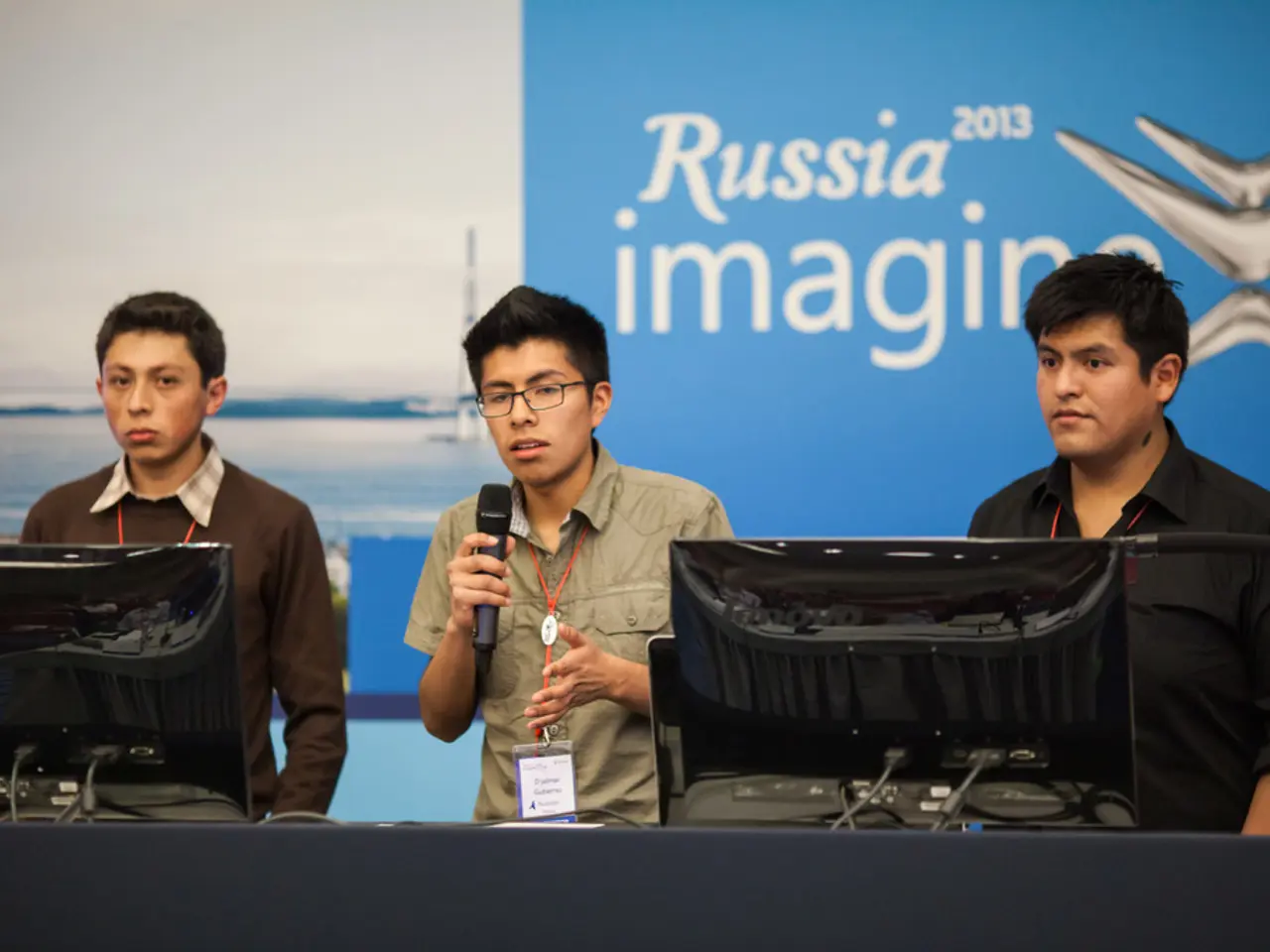U.S. to receive a 15% commission on AI chip sales to China through an unprecedented agreement between Nvidia and AMD, enabling the Trump administration to profit from such transactions.
Controversial AI Chip Deal: U.S. Government and Nvidia/AMD Strike Revenue-Sharing Agreement
In a move that has raised eyebrows among analysts and legal experts, Nvidia and Advanced Micro Devices (AMD) have entered into a business deal with the U.S. government. This agreement involves the sale of microprocessors used in artificial intelligence (AI) manufacturing, including those crucial for platforms like Claude and ChatGPT.
The deal, which was signed by Nvidia CEO Jensen Huang and former President Donald Trump last Wednesday, grants the companies export licenses to sell certain advanced AI chips—specifically, Nvidia's H20 and AMD's MI308—to Chinese customers. In return, the U.S. government receives 15% of the revenue from these sales.
This marks an unprecedented arrangement where the U.S. government takes a direct cut of revenues from U.S. tech companies' sales to China, reflecting a strategic effort to tightly control and monetize advanced technology exports amid the ongoing AI competition between the U.S. and China.
The U.S. government’s involvement through this revenue-sharing deal illustrates how Washington is inserting itself into the AI "war" with China by regulating and profiting from the strategic semiconductor supply chain. This represents a move away from traditional free-market dynamics toward a more interventionist approach to national security and technology dominance.
However, there are legal questions concerning the constitutionality of this revenue-sharing structure. Because the chipmakers contract chip manufacturing to Taiwan Semiconductor Manufacturing Company (TSMC) in Taiwan—not in the U.S.—the sales technically do not count as exports from the U.S. If manufacturing moves to TSMC’s new Arizona plant, the imposed 15% revenue share could be challenged as an unconstitutional export tax, since the U.S. Constitution prohibits taxes on exported articles.
Despite these concerns, the deal exemplifies the complex interplay of technology, trade policy, national security, and international competition in the current AI landscape. The AI sector is experiencing rapid growth worldwide, with companies like OpenAI, Anthropic, Meta, and others leading the way. The deal is a departure from previous international commercial agreements, as the U.S. government will receive a percentage of the sales.
Jensen Huang, CEO of Nvidia, predicts that AI will create more millionaires in the next five years than the internet did in two decades. The deal will result in the U.S. government receiving 15% of all sales made to Chinese companies. The AI sector is a battleground for global dominance, with the U.S. aiming to remain the absolute leader.
The deal comes after months of negotiations for the companies to obtain necessary permits. Some analysts argue that Trump's deal puts national security at risk in exchange for corporate profits. Liza Tobin, a former advisor on the Security Council, criticizes the deal as Trump's "playbook applied in the completely wrong arena."
China has developed low-cost AI development models, such as DeepSeek, causing concern for American companies. The deal is controversial, as some analysts see it as a risk to national security. There is no record of similar international commercial agreements in which the U.S. government receives a percentage of the sales.
[1] The Information
[2] Bloomberg
[3] The Verge
The revenue-sharing agreement between Nvidia/AMD and the U.S. government, focusing on the sale of AI microprocessors, highlights the integration of artificial intelligence technology into strategic decisions. The deal follows a trajectory that suggests a shift from conventional free-market dynamics towards a more interventionist approach in technology dominance and national security.
The complex interplay of technology, trade policy, national security, and international competition is further exemplified by the AI sector's rapid growth and the deal's implications for global dominance. Companies like OpenAI, Anthropic, Meta, and others are leading pioneers in this field, and the deal represents a departure from previous international commercial agreements with the U.S. government sharing revenues from sales.




